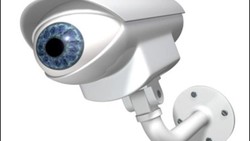Considering how many diseases could be treated by a pause button on metabolism, I would expect this technology to mature in clinics and hospitals long before we get them on spaceships.
Can you give some examples that’s really interesting
Isn’t this just a medically induced coma?
coma usually have big risks that comes with it. i dont think humans are capable hibernation like squirrels or some insects. the more extreme ones can go into cryptobiosis.
Coma has body functions still working, so blood pumping, ceels dying and regenerating, which means if you had cancer it would grow, if you had kidney failure, your blood cleanup would fail. Only thing AFAIK medically induced coma does is help with anything that the brain might be doing to itself like swelling or other complications.
Hibernation supposedly would slow down all metabolical functions, so less to no, blood flow and so on.
Three years? A low energy transfer orbit gets you to Mars in less than a year. In the past, theoretical crewed missions were planned with an 8-9 month travel time. With enough propellant, could get that down to just over three months. And that’s with chemical rockets, not some hypothetical nuclear or torch drive.
More importantly … what exactly is gained by this incredibly risky biochemical process?
- Less need for food supplies (seems like recycling/growing more is less challenging than human hibernation)
- Ummm less boredom?
It seems orders of magnitude cheaper, safer, and with more immediately Earth-beneficial spinoffs to focus on making more and better bio-recycling.
Humans who are active in space already have to spend a lot of work keeping up muscle and bone mass. Animals in hibernation under normal gravity also lose bone and muscle mass.
Imagine doubling that up, just to save a few sandwiches.
This. Being in a coma isn’t exactly healthy here on earth either and combining that with no gravity is a death sentence.
they dont lose it as much as humans would, they have adaptations to prevent it.
The major problem that needs solved before that even… Cancer.
Radiation once you leave our magnetic fields is going to be lethal working just a few months… Seeing as how Mars doesn’t have any, the only shielding is what they bring…
Check out some of the data NASA has collected
https://ntrs.nasa.gov/api/citations/20110006343/downloads/20110006343.pdf
Depends on what you mean.
- Hibernation as animals do it is not really in the cards. Humans don’t do that.
- A medically-induced coma is easy, but it also offers no advantages over being awake, but instead it really accelerates muscle and bone loss, something that’s already a big issue in zero gravity.
- Freezing and rethawing without killing the person is very, very far from being viable. It’s actually quite far from a concept of a plan right now. We have no idea how (or even if) we could do this.
A long way.
But first, 3 years? Maybe 3 months, though that is short and would require more fuel. More realistic is 6-12 months, though depends on at what point I’m the orbits you send them. Maybe you were seeing that the shortest distance between Earth and mars happens about every 2 1/2 years or so?
But it’s not the brain or even feeding that’s the problem. The real issue is bone mass and muscle loss in low gravity without constant exercise, otherwise you could just improve on coma-like inducing techniques to make them safer for that length of time.
But it would probably take longer than the trip to recondition the body to be able to survive and move around again on a planet with gravity. The amount of oxygen and food you’d save by hibernating a crew for 6 months seems minimal. It would require “artificial gravity” techniques like centrifugal force to mitigate that. But for such a short trip, the enormous amount of extra equipment for that would exponentially outweigh the air, food, and water, not to mention the enormous amount of additional power generation required.
This highlights that, with the sheer trouble it takes to keep humans alive in space and the general trajectory of technology, sending probes instead of humans it makes a lot more sense.
I mean, our automated probes are really freakin’ good now. And we get way more science and ‘TV clips’ back for the same investment. Why go to all the expense of figuring out hibernation so soon?
Well the goals of sending humans vs sending probes isn’t wholly the same. Humans part of the goal is study how humans live there and potentially try to make permanent, ideally self sustaining, habitats there
That’s just so impractical at the moment though.
Not that the research shouldn’t be done, but I think it one should expect, say, humans to be genetically or cybernetically augmented by the time a sustained settlement is even on the horizon. Then what? What about autonomous systems that could set everything up ahead of time relatively trivially? These are all feasible compared to he immense cost of repeated interplanetary human space travel, and the sheer difficulty of keeping plain humans alive in space.
Where I’m coming from is something speculative like OA’s early timeline: https://www.orionsarm.com/eg-article/486e75a54a1ae
And that the future doesn’t really look like Star Trek or Mass Effect, with plain humans running around and settling space.
From personal experience pretty fucking close.
What do you mean, personal experience? With cryosleep/hibernation/watchamacallit?
Artificially induced coma is pretty close, I guess.







